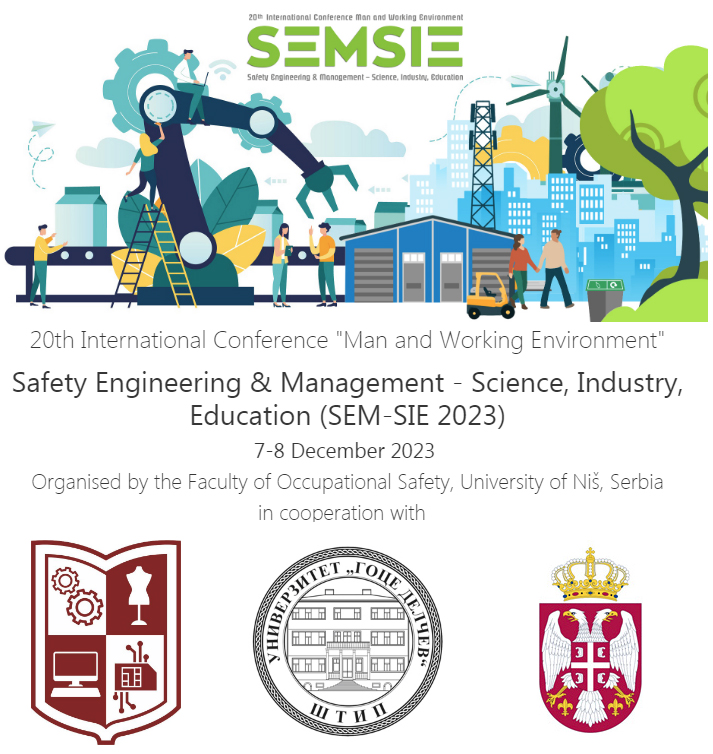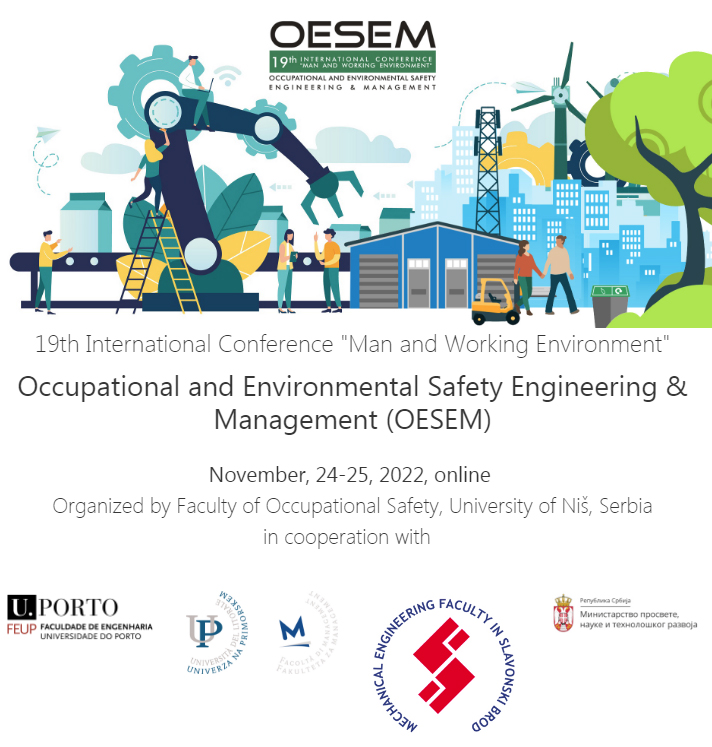SEMSIE 2023
The concept of safety and protection is viewed as directly related to scientific advancements, to their application in industry and economy, and especially to educational policy and its implementation in various segments of the formal and non-formal education system. Creating a safe and healthy environment entails not only education, training, and improvement in the context of lifelong learning, but also creation of a climate that encourages learning, participation, human resource development, and safety-related leadership.
Digital workplaces, the growth of automation and robotization, the diversification of business, work from home, self-employment, and remote and seasonal jobs on the one hand, and violence, harassment, conflicts, drug abuse, stress, and other psychosocial risks affecting the quality of mental and physical well-being on the other hand, pose new risks and impose new requirements in terms of workplace safety and health.
Global issues such as energy, food security, demographic growth, climate change, natural disasters, poverty, etc., have only served to emphasize the importance of interdisciplinary, multidisciplinary, and transdisciplinary research. Changes in the education system should be viewed as a future-oriented process that needs to cover all segments of the education system, particularly the area of professional education of occupational, environmental, and fire safety engineers.

